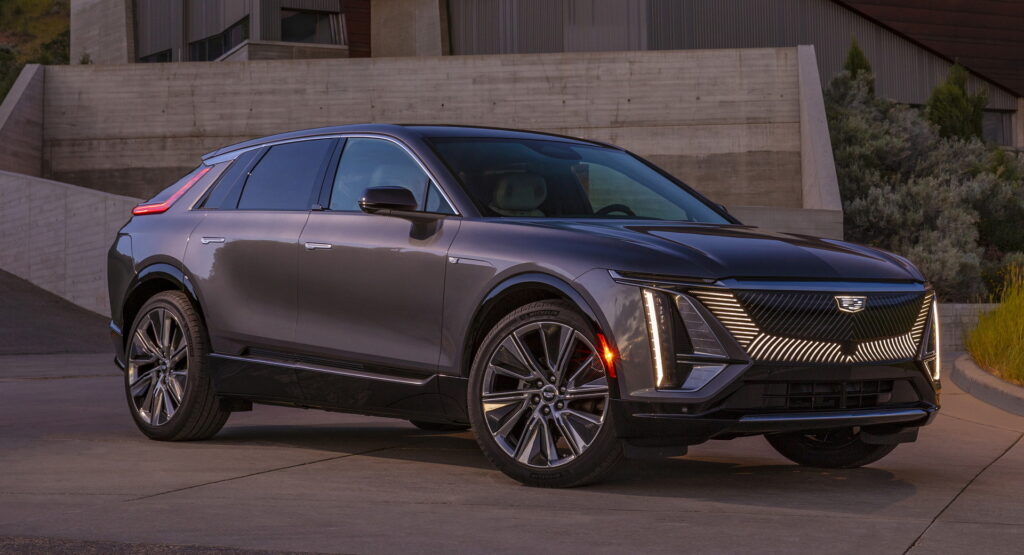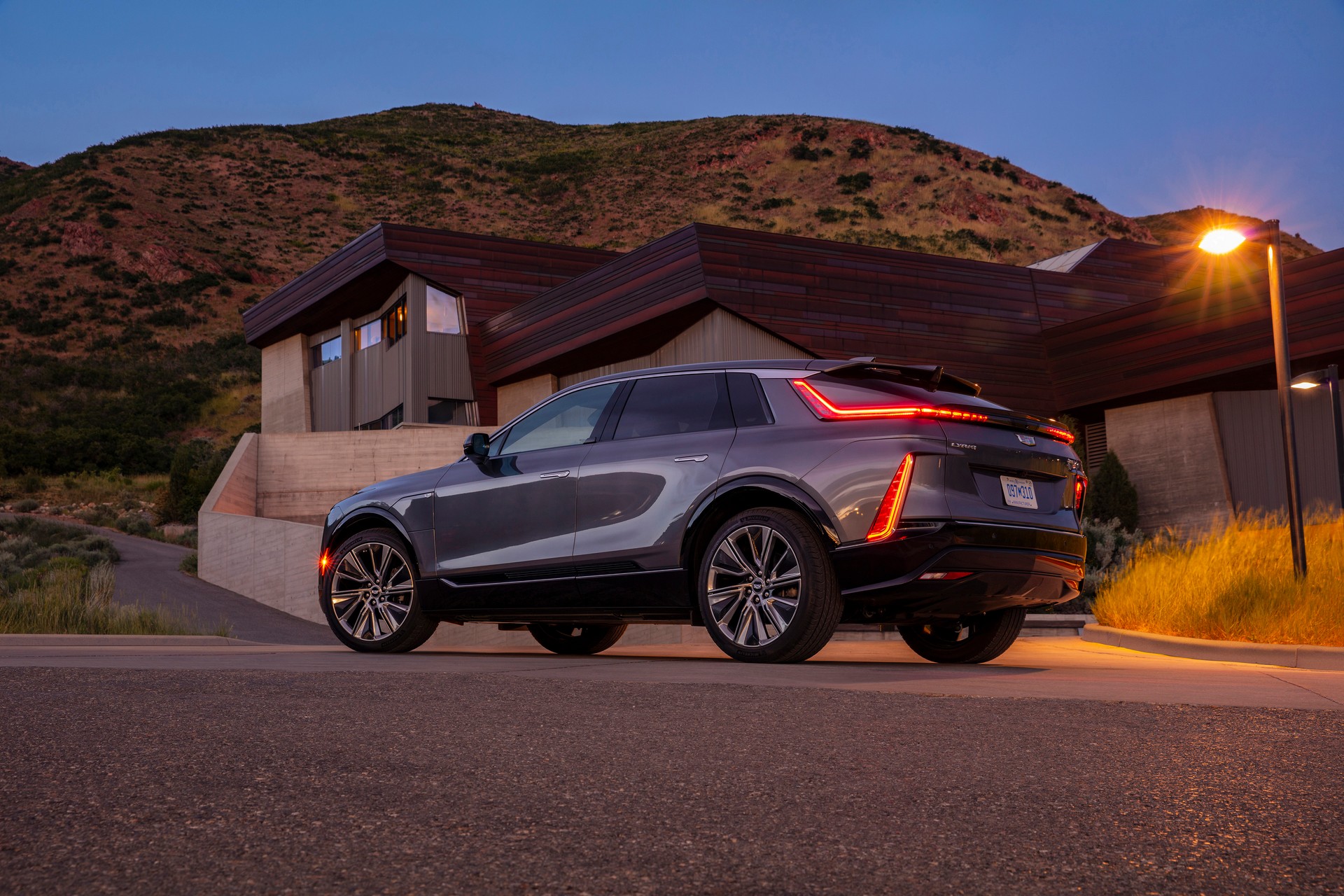General Motors has offered a select group of Cadillac customers a $5,500 discount on the purchase or lease of a new Lyriq in exchange for access to a large amount of their data. The company has also asked the buyers to sign a nondisclosure agreement, preventing them from talking about their experience with the paradigm-setting electric luxury vehicle.
The discount was first reported by CarsDirect, in June, but the terms of it were not known at the time. This week, the Detroit Free Press learned about the program’s details from two unnamed sources, but the program was confirmed to the outlet by a Cadillac spokesperson.
“As we transform our business, the launch of our first all-electric vehicle, Lyriq, provides Cadillac some unique learning opportunities,” Michael Albano, a Cadillac spokesperson, told the outlet. “Therefore, we have engaged a small group of early customers who agree to share their vehicle information and customer behaviors. Cadillac will use these learnings to elevate the experience for all our customers.”
Read Also: Here’s Why The Lyriq Is So Important For Cadillac’s Present And Future
Normally, an automaker would collect this kind of data from employees, but Cadillac said it wanted a more realistic picture of customer behaviors from a group of people who were less invested in the brand and the vehicle.
According to Albano, Cadillac has chosen around 20 customers for the program, but how they were chosen remains unknown. Participants were located in the New York, Detroit, and Los Angeles areas and are tech-savvy, early adopters.
“The number of customers involved is intentionally very small,” Albano said. “We will use the program to learn more about customer behaviors and their vehicles. Beyond that, the details of the program are a private agreement between the customer and Cadillac.”
The benefit of conducting this kind of study with real customers is that Cadillac can learn about more than just the Lyriq. Albano said that, through this arrangement, it can learn about charging behaviors, driving behaviors, and how vehicles are used. The automaker will gather information in a variety of ways, including phone calls, a dedicated EV concierge team, and more. No details about how long the arrangement lasts nor the penalty for breaking the NDA have been shared.
Although this is an unusual program within the automotive space, similar strategies are utilized within the tech space with the release of “beta versions” of software and technology, Erik Gordon, a business professor at the University of Michigan, told the Detroit Free Press.
“I don’t know of any other instance of this in the car business. But I kind of get it,” Gordon said. “You come out with a new product and new platform. You like to gather data. I think it’s more realistic to gather data from nonemployees; you get a wider variety of people and people who are not so gung-ho.”
As to the nondisclosure agreement, he reckons it’s legal in this case and enforceable. It also makes sense in the context of this program, since “you don’t want people to blab about your experiment.”
Ivan Drury, meanwhile, the senior manager of insights at Edmunds.com, who used to work in product planning at American Honda Motor Co., had a warning for people who want this discount, if it happens again in the future.
An arrangement such as this one means that GM “could watch everything you do, all the features you use, every mile you drive, how much do you charge, do they need this much range? You can get some powerful data sets. (GM’s) not wasting their money.”






